
Thoughtfully & Creatively Designing Change with Anchal Project
We sat with Anchal Project and learned how they have created alternative careers in textiles and design to over 200 women in India and Kentucky, providing design training, health benefits, education workshops, and financial security. Local artisans learn how to create one-of-a-kind pieces and support themselves and their families through safe and dignified employment.
What’s the Anchal Project all about in 140 characters or less?
A non-profit social enterprise using design thinking to create innovative textiles and sustainable jobs to empower exploited women worldwide.
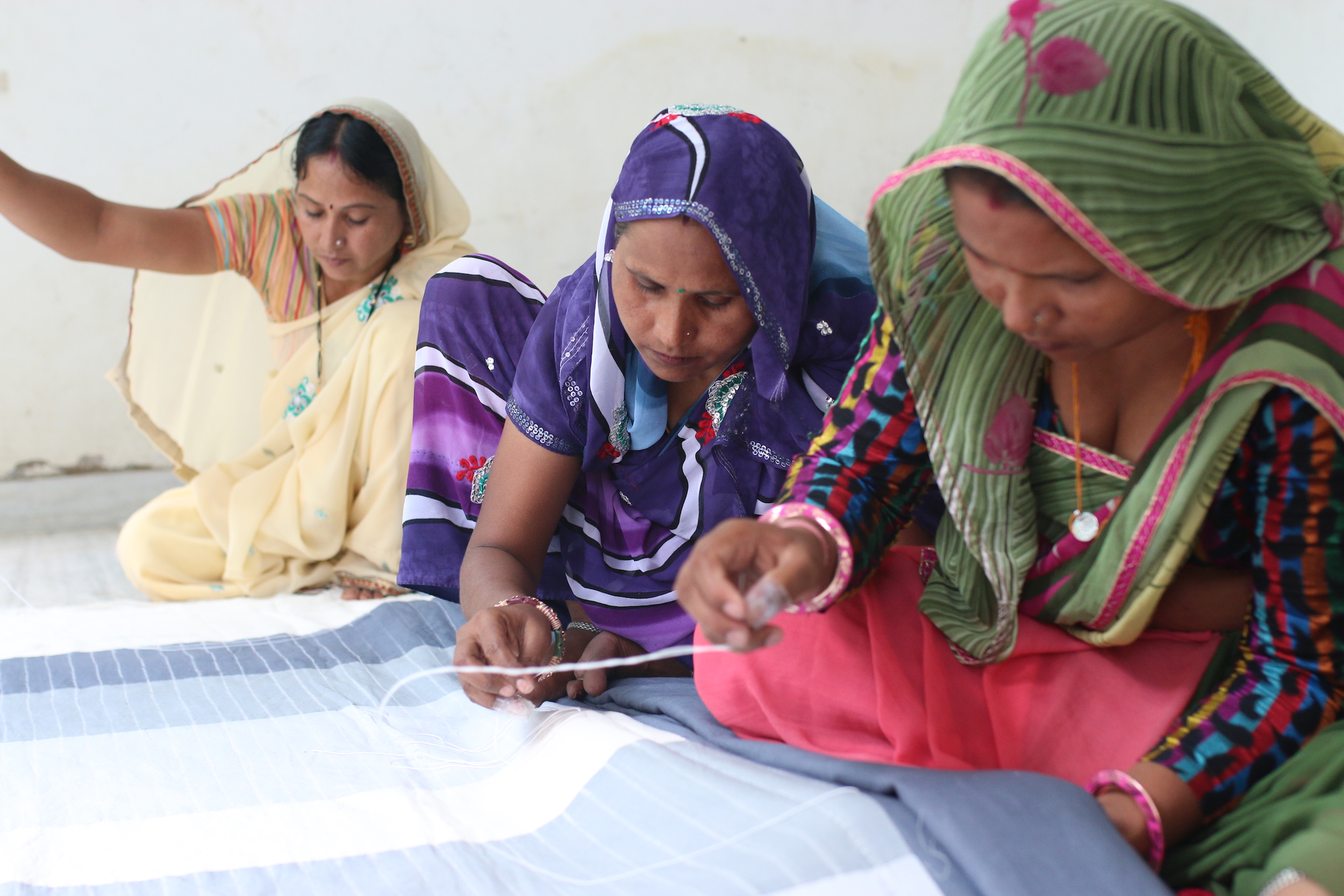
Anchal Project
How is the Anchal Project designing change? Why design?
We believe design can change lives. To date, Anchal has provided alternative careers in textiles and design to over 200 women in India and Kentucky. We are passionate about creatively changing lives with the power of design and spreading that message globally.
With backgrounds and training in design, sisters Colleen and Maggie Clines lead Anchal by continuing to place design at the center of Anchal’s everyday practice. The Clines sisters’ designs explore the synthesis of vernacular imagery, heritage artwork and a maker’s journey to empowerment. The contemporary geometric designs are defined by sophisticated patchwork and aggregated stitch patterns, revolutionizing traditional kantha quilting techniques.
Our Narrative Collection draws inspiration from the vibrant visual stories found in architectural details and the powerful women in India. Each design is captured in a photograph and translated into a quilt’s compositional pattern. The dynamic energy of each quilt is activated by the individual stitch patterns, revealing the artisan’s process and determination.
The Anchal team’s passion for beautiful design goes beyond the end product. By employing design thinking, Anchal creates innovative and strategic solutions that tackle social inequality and refresh traditional business practices. Additionally, Anchal acknowledges design training as an invaluable life skill and entrepreneurial opportunity. We not only teach artisans how to sew, but also how to apply design thinking to problem solving and creativity. In order to create true sustainability, Anchal aspires to empower the artisans to make these conscious decisions themselves and use the skills to find new jobs.
Based on your knowledge of the textile industry, why is it critical to source handmade & eco-friendly products?
Eco-friendly at the root means having a positive impact on environment by negating harmful implication. The fashion industry is amongst the largest pollutants on earth. Harsh chemicals released during industrial-scale dyeing processes have harmful effects on both the garment workers and the surrounding environmental systems. This toxic “fast fashion” business model leads to massive amounts of textile waste.
We believe that by sourcing regionally recycled material, organic fibers, natural dyes, alongside creating quality handcrafted textiles, we can begin to offset the damage to people and our planet.
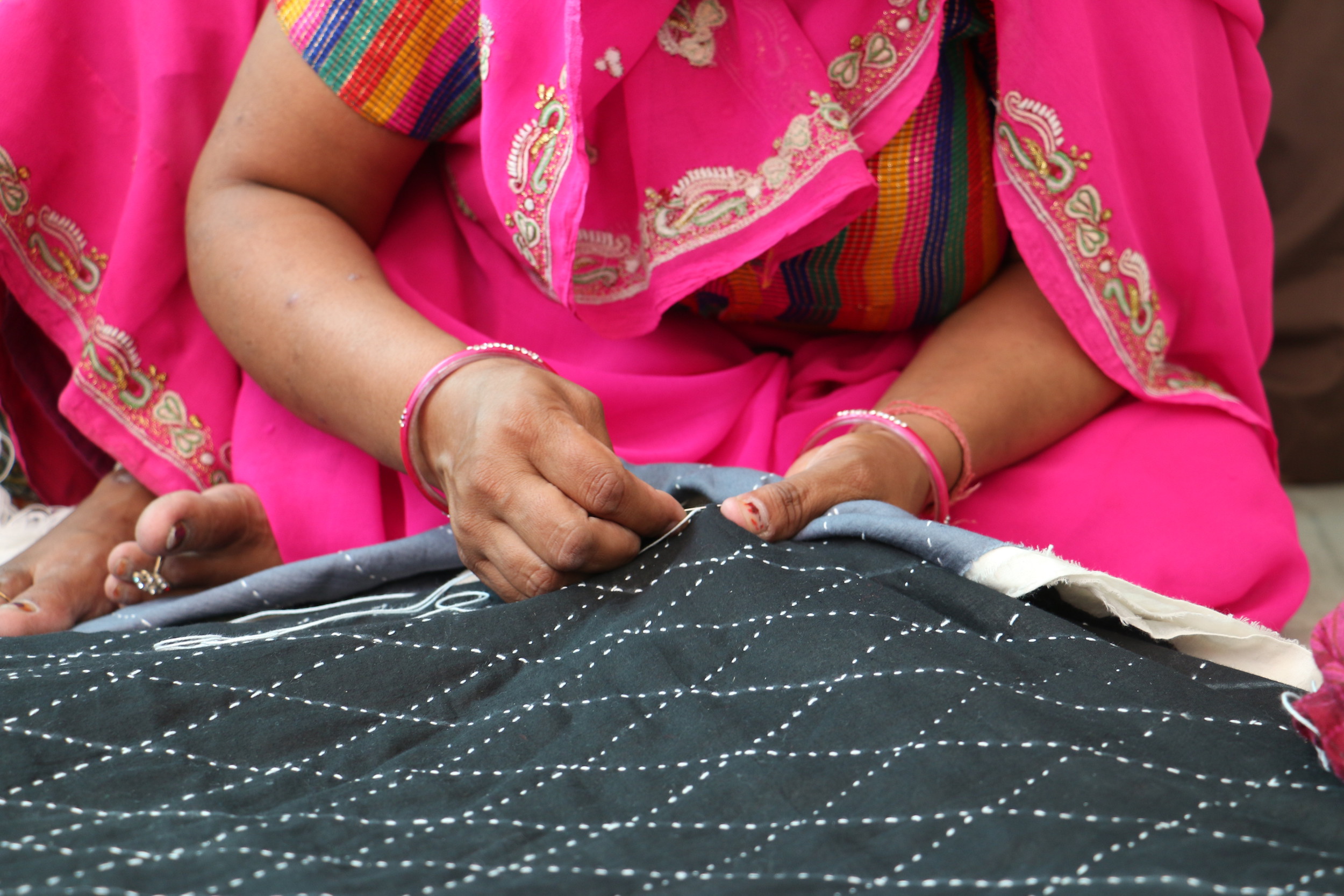
Anchal Project
From where does Anchal source its recycled materials, organic fibers, and natural dyes?
Our vintage cotton sari fabrics are sourced through vintage markets in India. Our women artisans pride themselves in hand-selecting the highest quality pieces from these markets, knowing that they will turn them into beautiful textiles to sell.
Our organic cotton is sourced from a GOTS certified factory in India and our dyes are historically traditional Indian natural dyes that we source locally as well.
How do you discover new artisans?
Anchal partners with established Indian NGO’s, Vatsalya in Ajmer, Rajasthan and New Light in Kolkata, West Bengal, who both see the need to provide entrepreneurial opportunities to commercial sex workers. Anchal meets this need by providing seed funding, design training, education workshops and access to U.S. markets. In exchange, our partners recruit Anchal artisans and manage operations. More importantly, they offer the women a community of support, health programs, counseling and local leadership that builds trust with this vulnerable population. Together we offer a unique program unmatched in its ability to create life-changing opportunities for exploited women in India. Existing artisans who have become leaders in the community also recruit new women. When recruits see the new economic successes and respect artisans receive from the community, they want to join the project.
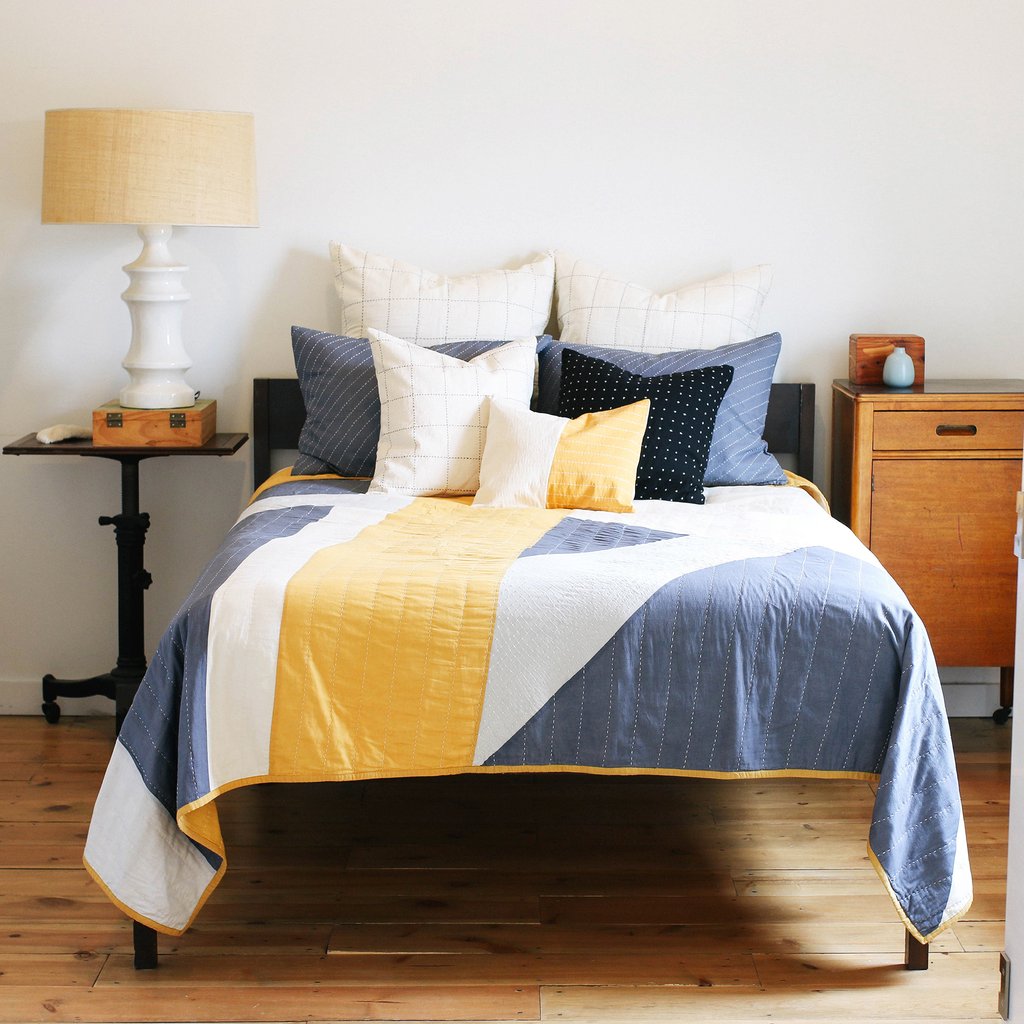
Anchal Project
What are your best-selling home goods products?
Our Kantha Throw Quilts and Decorative Pillows.
Who are some other eco-friendly home goods designers that you admire and why?
We are fans of the ethically made linens of Boll & Branch that pair beautifully with Anchal’s handcrafted bedding and pillows. Boll & Branch is working to transform the textile industry through transparency and thoughtful design, like Anchal. They are also fair trade certified and use GOTS certified organic cotton in their products
We also love handcrafted products of Indigo Africa. They work to empower women through opportunity and education, like Anchal, and also strive to protect and celebrate the traditional style and craft of the women they work with.
Both of these organizations have like-minded approaches to their business and products as Anchal. They produce thoughtfully designed and ethically made essentials that will make your home a more beautiful place.
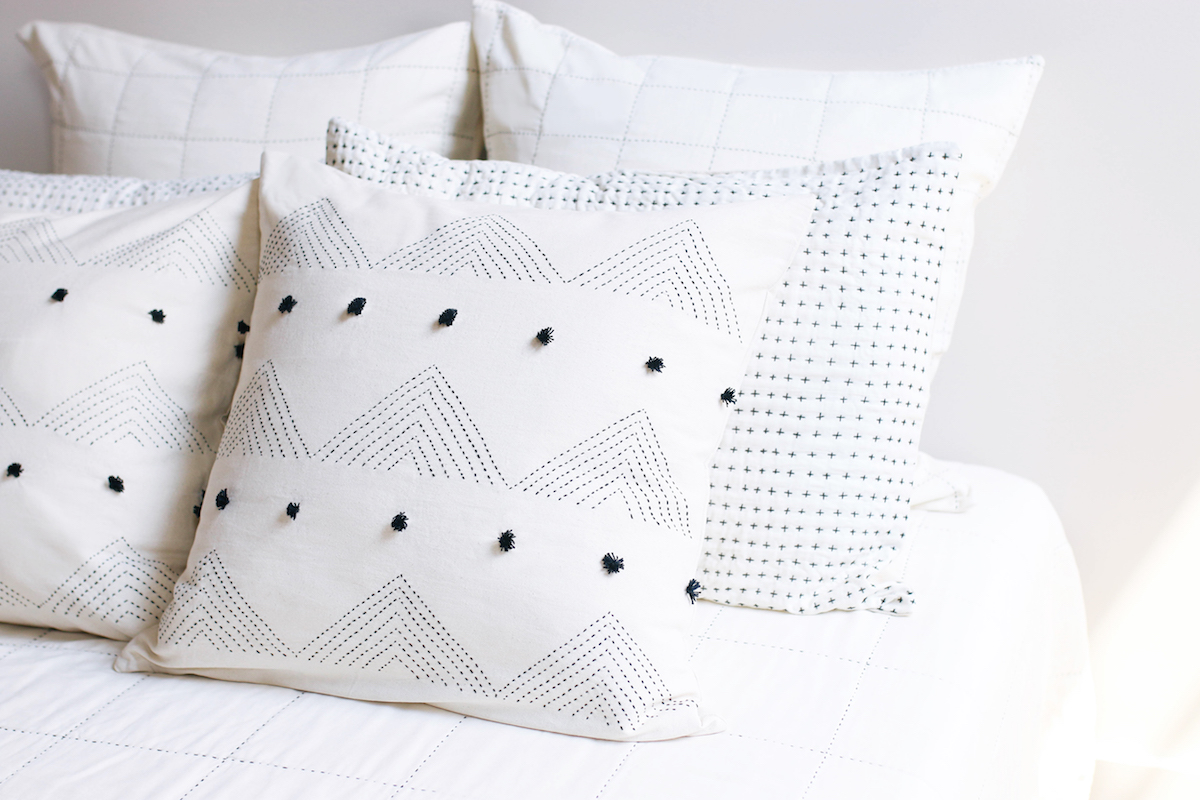
Anchal Project
How do you typically work with interior designers?
The Clines sisters love revisiting their Architecture and Interior Design roots by collaborating with fellow designers and learning about the exciting projects they are working on to curate the perfect collection or space for their clients. We enjoy the process of making product suggestions to designers to help curate these looks . Whether meeting at trade shows, such as NY NOW, or through referrals, sharing creativity and visualizing spaces with these designers is a fun opportunity for us. It’s so exciting to know that our one-of-a-kind products are being thoughtfully placed directly in a new home.
For those interested in purchasing eco-friendly products, what should buyers look out for?
Be empathetic in your everyday consumption. We have power to design change with our purchasing power, plus it is becoming more readily available in sophisticated designs. It’s easy to use the terminology “eco-friendly”. As a consumer, you really have to dive deeper into the business practices and production process—ask for actual data and transparency in terms of working conditions, payment, production processes, and impact reporting. This can involve added research, but in the end it’s worth it to know where your clothes are coming from and how they impact humanity and the environment. We believe that every individual has the chance to make a difference and become an agent of change as a global citizen.
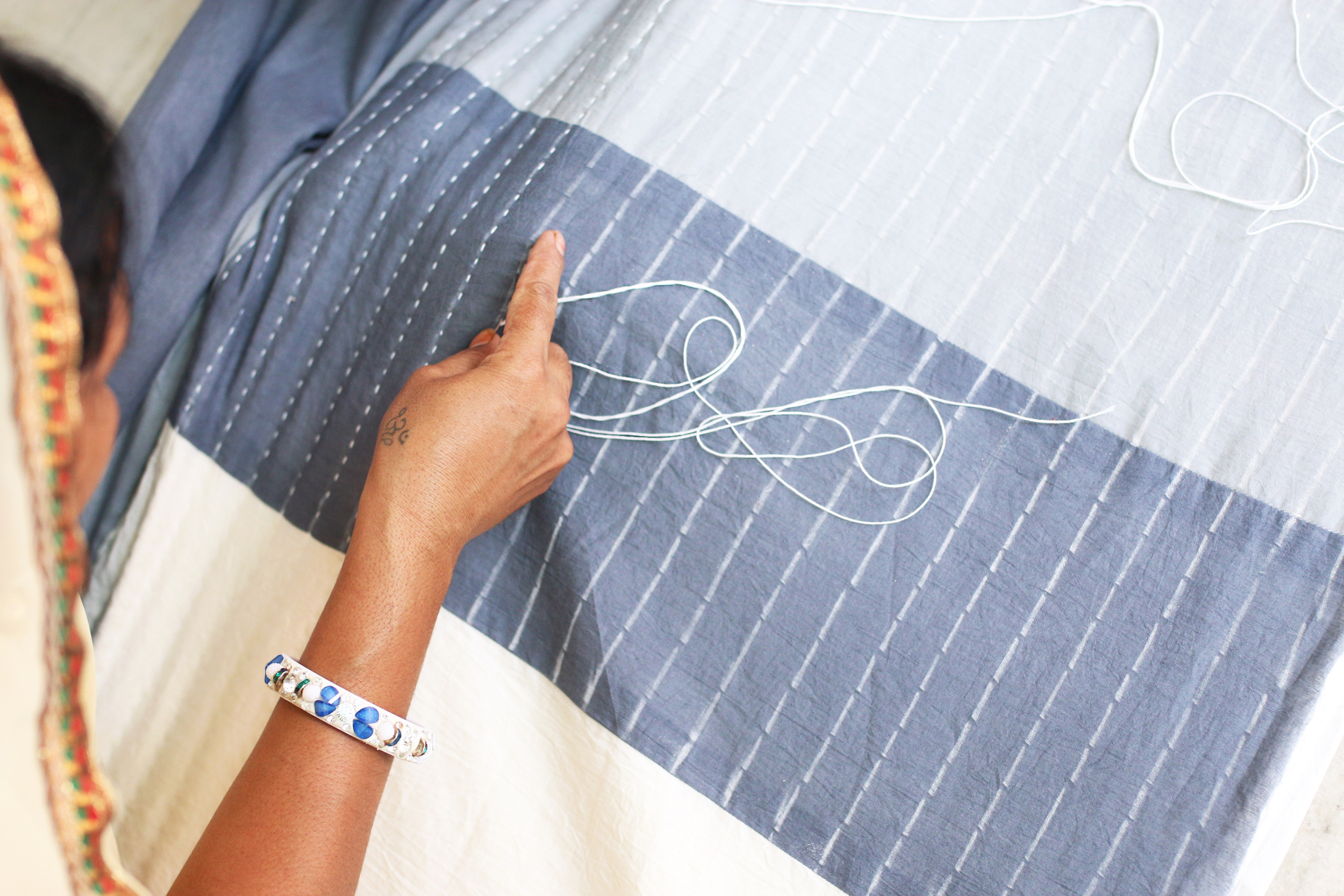
Anchal Project
What’s next for the Anchal Project?
As a social enterprise, we are planning to employ over 300 women in India and 10 in Louisville running self-sufficiently by 2020 via product sales. Anchal aims to become a retailer that offers eco-friendly goods created around the world and designed to reflect the city of origin, thereby creating a diverse and unique product offering to customers. Immediately this means you can keep an eye out for continued diversity in product offerings and increased accessibility to our collection that is naturally dyed in the United States.
Photography courtesy of Anchal Project, shot by Creative Director Maggie Clines
Here at Ivy, we’re more than just a software. Our mission is to provide interior designers with the community, resources and tools needed to manage your business beautifully. Are you searching for a business management tool to help streamline your workflow as an interior designer?




